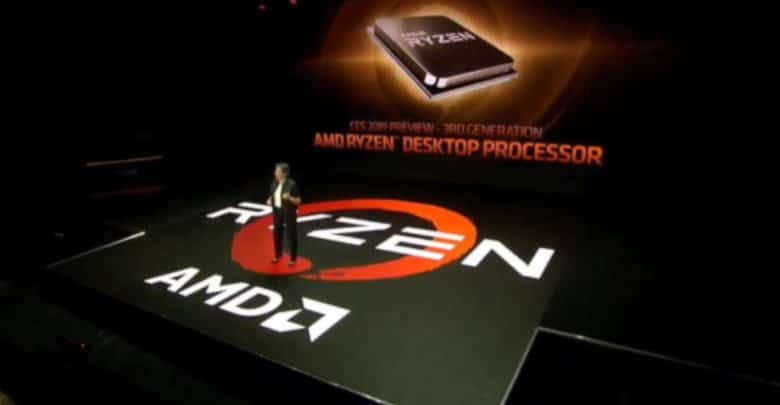
The AMD booth at the Consumer Electronics Show (CES) 2019 also featured the new AMD Ryzen 3000 processor manufactured in the 7 nm process, a highlight of the fair.
Technically, the processor is based on the Zen-2 architecture used in server processors. AMD’s goal is to beat the Intel Core i9-9900K (8 cores, 3.60 GHz clock, 5.00 GHz turbo) with the new processor. During the show, AMD CEO Lisa Su explained that Intel’s flagship Cinebench 15 could be beaten with “not final” clock rates. While the Intel Core i9-9900K reached 2,040 points, AMD could score 2,057 points with its new processor. An AMD Ryzen 3000 with a turbo clock of 4.60 GHz was used. However, this clock rate has not yet been confirmed by AMD.
Performance in everyday use still unclear
Compared to the current AMD Ryzen 7 2700X (4.30 GHz Turbo), AMD has achieved a performance increase of 15 percent. This was achieved by the higher clock rate and the increased Instructions per Cycle (IPC). Analysts assume that the 4.30 GHz turbo clock of the processor shown at the fair is not yet the maximum. It can be assumed that this clock rate was only used to narrowly beat the Intel Core i9-9900K. The final version that will be released could therefore have an even higher clock rate.
Moreover, it is questionable whether the AMD Ryzen 3000 with 4.30 GHz turbo clock is actually faster than the Intel Core i9-9900K. Only a benchmark result of Cinebench was shown at the fair, in which AMD processors traditionally perform better than Intel’s competitors due to Simultaneous Multithreading (SMT), who use Hyper-Threading instead. Whether the AMD Ryzen 3000 can beat the Intel processor in everyday use will only become clear later. At least the price should make the AMD product more attractive as usual.
7-nm for AMD against 14-nm for Intel
In addition, AMD is technically far more advanced than Intel, which still uses the 14 nm process, due to its 7 nm production. This is especially evident in the power consumption of 40 to 50 watts, while the Intel Core i9-9900K requires a maximum of 95 watts.
PCIe 4.0 is also supported in combination with the AMD 500 chipsets, which will presumably be presented at Computex 2019. Users who are still satisfied with PCIe 3.0 can also use the processor with socket AM4 mainboards.



